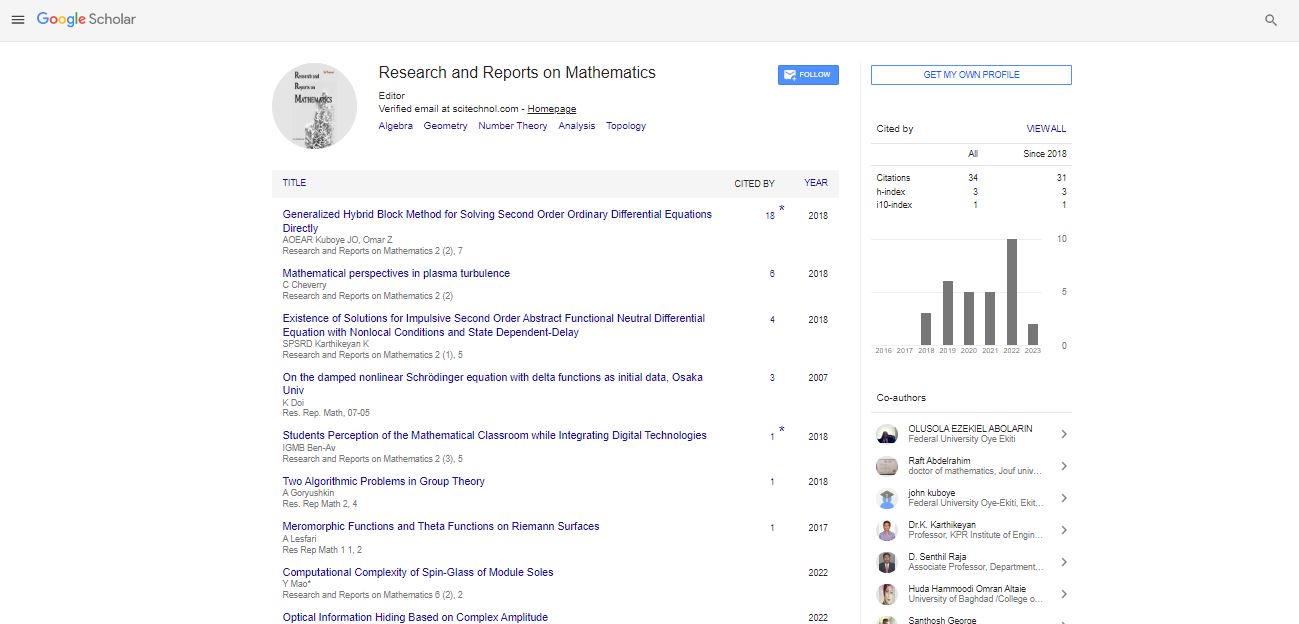Opinion Article, Met Mater Int Vol: 7 Issue: 2
Harnessing Metals for Sustainable Infrastructure and Transportation
Paul Suzzi*
1Department of Electronics, Massey University, Auckland, New Zealand
*Corresponding Author: Paul Suzzi,
Department of Electronics, Massey
University, Auckland, New Zealand
E-mail: suzzipaul@gmail.com
Received date: 23 May, 2023, Manuscript No. RRMT-23-107200;
Editor assigned date: 25 May, 2023, Pre QC No. RRMT-23-107200(PQ);
Reviewed date: 08 June, 2023, QC No. RRMT-23-107200;
Revised date: 15 June, 2023, Manuscript No. RRMT-23-107200 (R);
Published date: 22 June, 2023, DOI: 10.4172/Rrmt.1000173.
Citation: Suzzi P (2023) Harnessing Metals for Sustainable Infrastructure and Transportation. Met Mater Int 7:2.
Description
Metals have played a vital role in shaping human civilization, and their significance in sustainable development cannot be overstated. As the world faces environmental challenges and the need for responsible resource management, the role of metals in sustainable development becomes increasingly important. In this essay, it will explore how metals contribute to sustainable development in various aspects, including economic, social, and environmental dimensions.
Economic contributions of metals
One of the primary drivers of sustainable development is the economic aspect. Metals are essential for modern industries, including construction, transportation, electronics, and renewable energy. For example, steel and aluminum are fundamental materials in building infrastructure and manufacturing vehicles, while copper and rare earth metals are important for electronic devices and renewable energy technologies such as solar panels and wind turbines. Sustainable economic growth relies on efficient and responsible use of resources, including metals. Recycling and circular economy approaches are essential to ensure a steady supply of metals without depleting finite resources or causing environmental harm. As such, the recycling of metals contributes to sustainable development by reducing the need for raw material extraction and minimizing waste generation.
Moreover, the mining and processing of metals have significant social implications in the context of sustainable development. Mining operations can bring economic opportunities to communities and regions, providing employment and generating revenue. However, these activities must be conducted responsibly to avoid negative impacts on local ecosystems and communities. Sustainable mining practices involve minimizing environmental damage, promoting the welfare of workers, and respecting the rights and traditions of indigenous peoples in mining areas. Additionally, governments and companies must ensure that mining activities comply with stringent environmental and social standards, promoting transparency, accountability, and fair distribution of benefits.
Metals for climate change mitigation
Renewable energy technologies, such as solar and wind power, heavily rely on metals like silicon, copper, and lithium. These technologies play a vital role in transitioning away from fossil fuels and reducing greenhouse gas emissions. Moreover, metals are essential in energy storage systems, such as batteries, which enable the integration of intermittent renewable energy sources into the grid and promote energy efficiency. The development of advanced materials, like high-strength steel and lightweight alloys, also helps in reducing energy consumption and emissions in transportation sectors.
However, the production of metals is not without its challenges. Extracting and processing ores can be energy-intensive and have significant environmental impacts, including habitat destruction, water pollution, and emissions of greenhouse gases and other pollutants. To address these challenges, sustainable mining practices, cleaner production techniques, and energy-efficient processes are being developed and implemented within the industry.
Furthermore, the responsible sourcing of metals is gaining traction as a difficult aspect of sustainable development. Ethical concerns related to human rights violations and environmental damage in some mining regions have prompted the demand for responsibly sourced metals. Initiatives like the Kimberley Process Certification Scheme for diamonds and the Conflict-Free Sourcing Initiative for minerals like tantalum, tin, tungsten, and gold aim to ensure that metals are extracted and traded without supporting armed conflicts or human rights abuses. This approach encourages transparency and accountability in the supply chain, promoting fair practices and supporting social development in mining regions.
Another aspect to consider is the environmental impact of metal consumption and disposal. As metals are essential components of various products, their life cycles must be taken into account to achieve sustainable development. This involves not only responsible mining and production but also proper waste management and recycling. Designing products for durability, repairability, and recyclability can extend the lifespan of metals in the economy, reducing the need for continuous extraction and minimizing waste.
Conclusion
In conclusion, metals play a vital role in sustainable development across economic, social, and environmental dimensions. Their use is indispensable in modern society, especially in renewable energy technologies, infrastructure, and electronics. To harness the benefits of metals while safeguarding the planet and promoting social progress, responsible mining, efficient production, and recycling practices are imperative. Additionally, ethical sourcing and transparent supply chains are necessary to ensure that metals contribute positively to sustainable development by supporting human well-being and protecting the environment. By integrating these principles into policies and practices, society can leverage the potential of metals in achieving a more sustainable future.
 Spanish
Spanish  Chinese
Chinese  Russian
Russian  German
German  French
French  Japanese
Japanese  Portuguese
Portuguese  Hindi
Hindi 